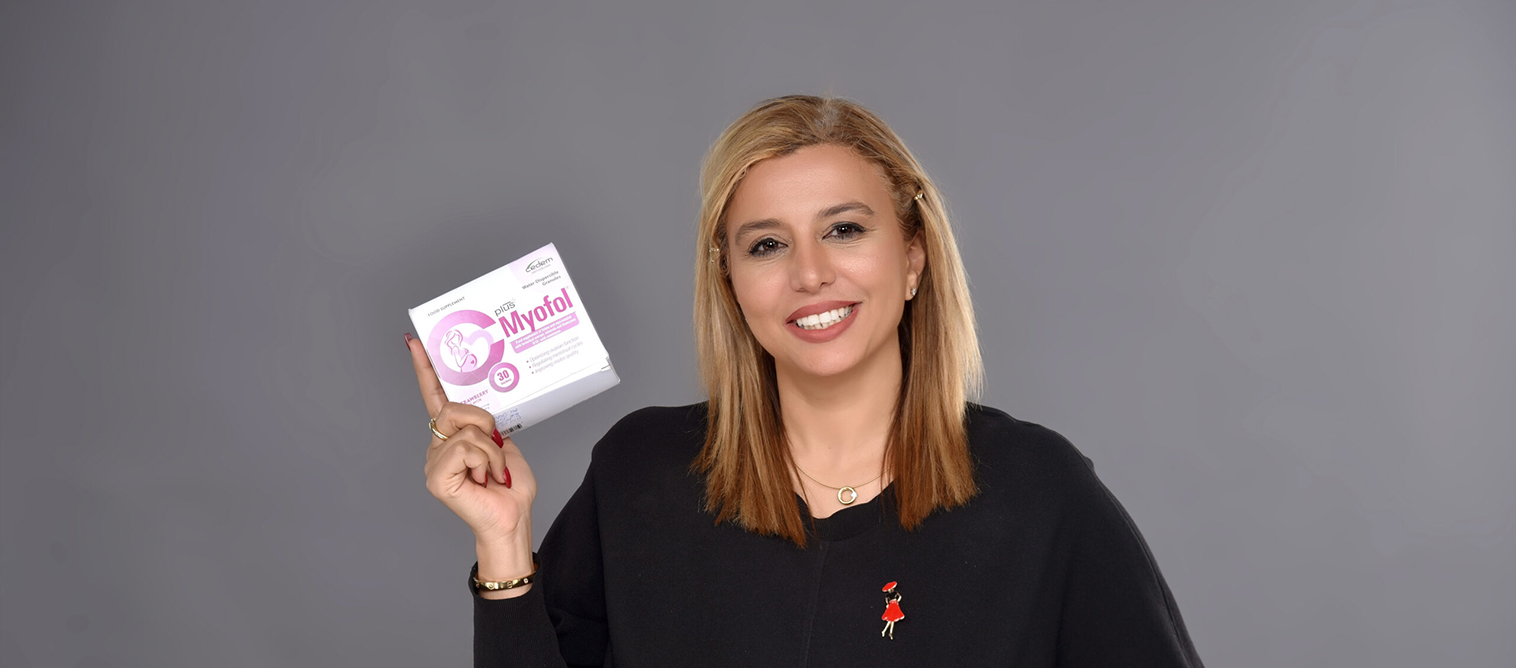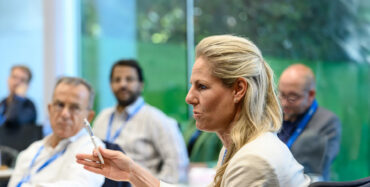
Rasha Oudeh (HPB 2022) knows that it takes a lot more than a bold vision and tenacity to succeed as an entrepreneur. In this age of disruptive technologies, she needs all the guidance and support she can get to foster organizational resilience and ride out market challenges. This includes having an expert-heavy corporate board that can provide strategic counsel to navigate an increasingly complex business environment.
“All my life I have known I had the DNA for building a successful business. My dream is to see my organization expand to all corners of the world,” she said. However, Oudeh started to question whether she could achieve this ambition without having a board, and even whether a lack of expertise in areas like corporate governance could jeopardize the sustainability of her business.
Building from the ground up
Oudeh’s journey as a self-made entrepreneur from a less advantaged background is nothing short of inspiring. In 1999, after graduating with a diploma in computer programming from a community college in Amman, Jordan, she landed her first job as a teacher of computer studies. In 2007, Oudeh underwent a significant career shift, joining a Jordanian pharmaceutical trading firm. Within six months, she proposed sourcing products from German companies. During her initial visit to Germany, two German businessmen proposed establishing a brokerage company. Seizing the opportunity, she accepted, and her boss returned to Jordan.
That same year – convinced that there was a market gap for European pharmaceutical products in the Middle East – she took the plunge and started MED-PRODUCTS GmbH, a pharmaceutical distributor headquartered in Frankfurt, Germany that supplied European pharmaceutical brands to the Middle East. It was a key milestone that kickstarted her entrepreneurial journey.
Driven by the responsibility of supporting her parents and seven siblings, Oudeh, a self-described hard worker, aspired to excel in the business of international exports. Despite lacking a scientific background, she recognized the pharmaceutical industry’s complexity and regulated nature. Unfazed, she became deeply familiar with diverse country regulations, medicine licensing, and the difference between private label concepts in Eastern and Western markets.
In 2011, she upped the ante and set up Mera Pharma GmbH, a pharmaceutical private-label company in Zug, Switzerland. “Initially I was scared to move to Switzerland which is a very conducive place for entrepreneurship despite its cost of living,” she said. “But it turned out to be the right decision.”
In 2015, she successfully sold both companies and acquired a significant stake in CEDEM AG, a Switzerland-based nutraceutical firm that manufactures vitamins and food supplements, where she currently serves as CEO.
Optimizing board effectiveness
Oudeh knows first-hand that a high-performing board of company directors plays a crucial role in positioning a company for long-term strategic success.
Currently the chairperson of the board at CEDEM AG, one of the top challenges she faces is how to achieve effective board governance. “I had to deal with some company investors who were behaving like board directors,” she said.
“I got all their roles muddled up. In the end, I had to buy them out.”
In her opinion, building a board can be a double-edged sword. “While a board can bring a fresh perspective, it can also lead to increased expenses, added time commitment, as well as potential for conflict of interest. It can result in routine meetings and repetitive jargon, diverting resources away from strategic innovation,” she said.
To engage more effectively with a board and optimize its performance, she enrolled in IMD’s High Performance Boards (HPB) program in June 2022.
Does your company need a board?
A key lesson from the program was that there was no one-size-fits-all corporate board. She recalled asking Didier Cossin, Founder and Director of the IMD Global Board Center, if small- and medium-sized enterprises (SMEs) even needed a board of directors.
“He told me that it might not be necessary for a small firm. An advisory board might be more suitable instead,” she shared.
His advice prompted Oudeh to rethink her board engagement strategy. “The advisory board, which provides expert knowledge and guidance, can still meet regularly to provide specialist advice on various subjects. But more importantly, they will not be able to block decisions as they have no voting rights,” she said.
The HPB program also shone the spotlight on succession planning, an important task undertaken by the board committee to facilitate a seamless transition of power.
“The entrepreneur cannot achieve her dream if there is no successor. And if I am no longer here, what will happen to the business I have created?” she said. “As a woman from the Middle East, the program highlighted to me the contrast between board-enforced succession planning and the traditional business structure in the Middle East where many businesses are family-run or family-controlled,” she added.
Oudeh has since channeled her new perspective on board dynamics into the Amali Mentorship Program, a business network she founded in 2018 that aims to support female entrepreneurs from underprivileged backgrounds.
“My HPB experience has helped me to rethink the network and the way it functions,” she said. “It has reshaped my views on mentorship. Previously, I was too focused on mentorship being the only way of guiding people and the organization by educating the mentees on the fundamentals of startups. Now, I think a better way would be to build up a small advisory board that can advise you in their respective areas of expertise.”
Her advice to aspiring board members? Be honest about how you can contribute to the organization and work on building up your expert knowledge, she said.
“You have to be genuinely knowledgeable about your area of expertise to provide real value-add. You won’t be able to lie your way through.”


